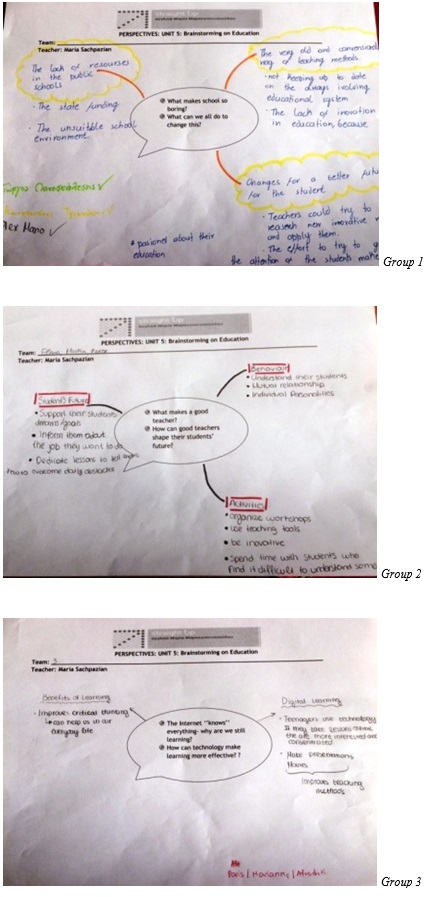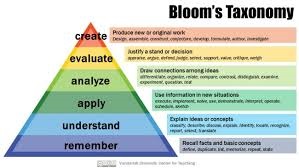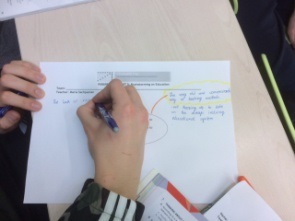Teachers and Schools Through the Eyes of Students
Maria-Araxi Sachpazian, Greece
Maria-Araxi Sachpazian RSA dip/ TEFL (hons) is a graduate of the Department of Philosophy and Education of Artistotle University of Thessaloniki and a holder of the RSA Diploma. She works as a lecturer at CITY college, the International Faculty of the University of Sheffield and she is the owner of a business and academic support e-company, Input on Education. She is the current chairperson of TESOL Macedonia-Thrace, Northern Greece. Email: msachpazian@citycollege.sheffield.eu

Menu
Introduction
The project
Boring schools
Teachers and their role in shaping the students’ future
The internet ‘’knows’’ everything
Conclusion
References
The way students view school and teachers should be central in our research for school efficacy and in our attempts to determine what young people really want from school. Seen in this way, this kind of insight could bridge the gap between what the school provides and what students really want or need. As an educator what troubles me the most is the fact that school (in most countries) with its curricula and syllabi seems to be moving too slowly to catch up with the times. Therefore, we end up teaching content (subjects and units in subjects) which are either out of date or they will be by the time our young people will need to take their place in the economies of the 21st century. As it very well pointed out in the video by RSA Animate (which can be accessed at www.youtube.com/watch?v=zDZFcDGpL4U0), entitled Changing Education Paradigms, which is based on the TED Talk by Sir Ken Robinson, since we do not know what the economy will be like by the end of the week, we have no idea what needs employees of the future will have to cater for. All this may serve to explain our emphasis on transferable skills and the very general (and at times rather vague) 21st century skills.
In an attempt to see how my students view education and teachers, I had them work in three groups and brainstorm on the broader topic of ‘’Education’’. The class consists of 9 teenagers, aged 14-15 at C2 level, who will be taking their exams in May 2018. This activity was the lead-in part of the first lesson for unit 5.which in our coursebook (Perspectives on Proficiency, by Burlington Books) is on Education. The reading we were about to do was on how teaching and exams can be gamified, a notion so foreign to Greek students that it took them a while to understand the gist of the text and the implications of the method.
The students were split in three groups which were given slightly different topics to work on, as can be seen in the photos of the material given to students.
The first group consisted of three boys (George, Kostis and Alex) and their topic was:
- What makes school so boring?
- What can we do to change that?
The second group was mixed (Petros, Martha and Elena) and their topic was:
- What makes a good teacher?
- How can good teachers shape their students’ future?
The third group was mixed as well (Aphroditi, Paris and Marianna) and their topic was:
- The internet ‘’knows’’ everything-why are we still learning?
- How can technology make learning more efficient?
Students were given 10 minutes to brainstorm on the special forms given and then another 5 to prepare short presentations. As I was interested to have all of them speaking, groups did not choose a representative but they all shared the presentation.

NB. These are the three worksheets on which the groups worked. I have not ‘’edited’’ the students’ work. Error correction was done and feedback was given during the presentation stage.
The first group pointed out that the lack of resources in public schools (out of these three students only one goes to a private school) is such that lessons are out of touch with what is happening in the real world. Students were fair to their teachers and mentioned that this is due to lack of state funding (Greece has been facing a credit crunch since 2010). Students also commented on the unsuitability of the school environments. They pointed out the fact that classrooms look ‘’old’’, ‘’dull’’ and dated, with desks that are reminiscent of previous decades (and not comfortable at all, I would like to add). They also highlighted the fact that subjects are not given special classrooms, for example there are not enough labs for science and the information technology lesson is either taught in a regular classroom or if taught at a computer lab, the computers are not enough nor well maintained and up-to-date.
Moving on to classroom practices, students were quick to say that the teaching methods have not changed in years and teachers feel that reading or repeating information in the same way is enough for students to learn. In the presentation students mentioned that the educational system should be evolving but it due to lack of innovation.
In answer to the question regarding what can be done, students answered that teachers can research and find new and innovate ways to teach their subjects and actually make an effort to apply them in practice. I was particularly impressed with what they said at the end of their presentation: “Teachers need to make an effort to grab the students’ attention and make them passionate about their subjects.’’
The second group started their presentation by pointing out that good teachers support the dreams and goals of their students. They also mentioned an incident in their day school during which a teacher told one of the students not to invest in becoming a football player because this was a very hard and challenging career path. Students commented negatively on the fact that the teacher (not a PE teacher or coach), did not encourage the student to believe in himself and simply ‘’go for it’’. Students also pointed out that teachers need to supply realistic information about the careers students want to follow. Finally, it was mentioned that we need to devote lessons to teaching students ‘’Life skills’’ or what they called ‘’lessons to teach us how to overcome obstacles’’.
Regarding the good teacher’s behavior, students said that talented teachers understand their students. The described a relationship of mutual respect, in which individual traits and personalities are accepted and seen as the norm, not the exception. The students had a lot to say regarding how teachers can shape their students future. They pointed out that teachers can organise workshops and I was particularly impressed by the idea of active student engagement that was seen in what they were describing.
They also pointed out that in order to shape the students’ future, the teacher has to spend more time with the students who are struggling to understand. In general, it was agreed that teachers should research their teaching more and find teaching tools to make their teaching more innovative.
The reason I decided to include this sub-topic is because in the Greek educational system, learning things by heart and writing long exams is central. Out of the entire Taxonomy by Bloom, the Greek educational system (and consequently the Greek families) have chosen to focus on the how to Remember. Understand gets some attention too, though a lot of students simply parrot, without understanding or making connections between their current and pre-existing knowledge. Apply may also get some attention, but mainly in subjects such as Maths or Science, in which application of knowledge is key, but Evaluate and more importantly Create are lost to us.

The presence of the Internet in our lives with applications such as the iOS Siri or sites such as Wikipedia has made locating the information or recalling it, an automatic activity which does not necessitate thinking. If we can find the information online, why are we still parroting? My aim was to see if my learners would think of knowledge and education as something more than simply recalling information. My students did not let me down as the first thing they pointed out was that greatest benefit of learning is the improvement of Critical Thinking Skills, which can help us in our everyday lives. They also discussed Digital Learning saying that teenagers can use technology to have lessons online. They thought that these lessons are more interesting and they manage to hold the students’ attention more. They also thought that technology helps learning become more active as the teaching methods can change and students can use technology in class to make presentations.

As always I feel that educators, policymakers, syllabus and curricula designers discuss theoretical issues in absentia of the most important player on the ‘’Education’’ chessboard: the students themselves. A little under 20 minutes was enough for a group of 9 teenagers to talk about innovation in education, differentiated teaching with the teacher devoting more time on students who need more attention, education instilling passion in the hearts of children for more education and for future projects and finally about learning and knowledge as a way of improving our critical thinking skills. Inspired by modern learning spaces and interested in blended learning as the ‘’it’’ thing of the (near) future, I am really inspired by the vision of that school. A school that accepts individual differences, spots the passion of each learn and helps them create a person path within mainstream education, so that children around the world actually want to go to school. The question is how many of us think this is attainable and do higher political powers want a school of this kind that will actually ‘’produce’’ thinking voters?
Callahan, Sh. And Williams, Tr. (2017),Perspectives on C2, Burlington Books, Cyprus.
Robinson, Ken.Chaning Education Paradigms.
[Video by RSA Animate https://www.youtube.com/watch?v=zDZFcDGpL4U Accessed on 29/1/2018]

Please check the How to be a Teacher Trainer course at Pilgrims website.


|